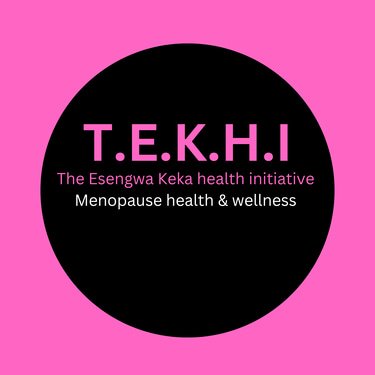Preparing for Menopause in Your Thirties: Proactive Strategies for a Smooth Transition
Are you in your thirties? Are you wondering how your current lifestyle decisions will impact your health in the years to come ? Read to find out !


Preparing for Menopause in Your Thirties: What to Do and What to Avoid
Menopause is a natural phase in a woman's life that typically occurs between the ages of 45 and 55. However, it is not uncommon for some women to experience early menopause in their thirties. While menopause in your thirties may present some challenges, being proactive and making certain lifestyle choices can help you navigate this transition with ease. In this article, we will explore five things you should do and five things you should avoid to prepare for menopause in your thirties.
What to Do:
1. Educate Yourself
Knowledge is power when it comes to understanding menopause and its potential impact on your health. Take the time to educate yourself about the symptoms, hormonal changes, and potential health risks associated with menopause. This will help you make informed decisions and seek appropriate medical advice.
2. Prioritize a Healthy Lifestyle
A healthy lifestyle is crucial for managing the symptoms of menopause. Focus on maintaining a balanced diet rich in fruits, vegetables, whole grains, and lean proteins. Regular exercise, such as brisk walking or yoga, can help alleviate symptoms like hot flashes and mood swings. Prioritize getting enough sleep and managing stress through relaxation techniques like meditation or deep breathing exercises.
3. Build a Support Network
Menopause can be a challenging time, both physically and emotionally. Surround yourself with a supportive network of friends, family, or even a menopause support group. Sharing your experiences and concerns with others who are going through a similar phase can provide comfort, guidance, and reassurance.
4. Consider Hormone Therapy
Consider purchasing the PREMIUM COACHING PROGRAM by TEKHI. It is 12 weeks, all inclusive package which will transform your entire narrative. It will empower you to embrace your future menopause period with full tenacity & grace (Visit www.tekhiglobal.com to benefit from the program)
5. Regular Health Check-ups
Regular health check-ups are crucial for monitoring your overall health during menopause. Make sure to schedule routine visits with your healthcare provider to assess your hormone levels, bone density, cholesterol levels, and blood pressure. These check-ups will help identify any potential health issues and allow for timely intervention.
What to Avoid:
1. Ignoring Symptoms
Ignoring the symptoms of menopause can have a significant impact on your quality of life. If you experience irregular periods, hot flashes, mood swings, or any other symptoms associated with menopause, do not dismiss them as insignificant. Seek medical advice and discuss your concerns with a healthcare professional.
2. Smoking and Excessive Alcohol Consumption
Smoking and excessive alcohol consumption can exacerbate the symptoms of menopause and increase your risk of developing various health conditions. Quit smoking and limit your alcohol intake to moderate levels, as these lifestyle choices can have a detrimental impact on your overall health, hormonal balance, and bone density.
3. Sedentary Lifestyle
A sedentary lifestyle can worsen menopausal symptoms and increase the risk of weight gain, osteoporosis, and heart disease. Engage in regular physical activity to maintain a healthy weight, strengthen your bones, and improve your overall well-being. Aim for at least 150 minutes of moderate-intensity aerobic exercise per week.
4. Excessive Caffeine and Spicy Foods
Caffeine and spicy foods can trigger hot flashes and night sweats in some women. Limit your intake of caffeine-containing beverages like coffee and tea, and reduce your consumption of spicy foods if you notice that they worsen your symptoms. Pay attention to your body's reactions and make adjustments accordingly.
5. Neglecting Emotional Well-being
Menopause can have a significant impact on your emotional well-being, leading to mood swings, anxiety, and depression. Neglecting your emotional health can make these symptoms more challenging to manage. Practice self-care, engage in activities that bring you joy, and seek professional help if needed. Counseling or therapy can provide valuable support during this transitional phase.
Conclusion
Preparing for menopause in your thirties requires a proactive approach to your physical and emotional well-being. By educating yourself, prioritizing a healthy lifestyle, building a support network, considering hormone therapy if necessary, and staying on top of your health check-ups, you can navigate this phase with greater ease. Conversely, avoiding the neglect of symptoms, smoking, excessive alcohol consumption, a sedentary lifestyle, and triggers like caffeine and spicy foods will help minimize the impact of menopause on your overall health and well-being. Remember, menopause is a natural process, and with the right strategies in place, you can embrace this new phase of life with confidence and grace.
